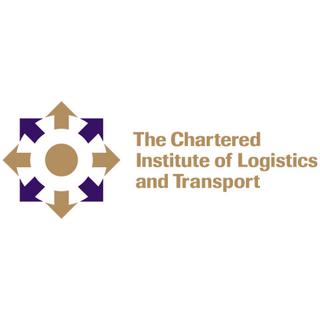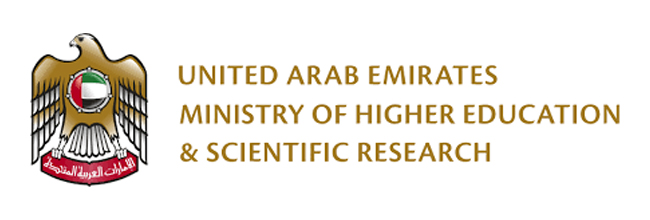Key information
- Level
- Postgraduate Taught
- Delivery type
- Full Time, Part Time
- Degree qualification
- MSc
- Mode of delivery
- On-Campus
- Duration
- 1 year
- Location
- Dubai
- Start date
- September, January
- Next intake
- September
The MSc Logistics and Supply Chain Management programme calls upon established industry links and sector-leading research to equip students with the required expertise. The COVID-19 pandemic has shown the importance of supply chain management in mitigating global risks.
Our postgraduate classes are delivered in the evenings to accommodate working professionals.
This programme offers students a comprehensive understanding of global logistics and supply chain dynamics, alongside the analytical tools necessary for effective management in today’s fast-paced business environment. Students will engage in real-life case studies, enhancing their problem-solving skills and enabling them to make informed decisions in real-world scenarios.
The programme emphasises the impact of digital transformation and sustainability on supply chain management. By integrating digital innovation with sustainability, graduates will be prepared to lead initiatives that enhance operational excellence while fostering corporate social responsibility.
This programme gives those who have worked in the field the opportunity to formalise their knowledge through an MSc study and offers an opportunity for others from different disciplines to gain new specialist knowledge and expertise within the area.
This year-long Master's programme focuses almost entirely on the area of Logistics and Supply Chain Management. It blends latest academic thinking with best practices from the industry to give graduates and professionals the opportunity to advance with a highly employable skillset. The programme is also available for part-time study in Dubai and can be completed over a duration of 24 months.
The Edinburgh Business School approach
Our mix of research-led, industry-focussed learning offers the ideal preparation for those who aspire to build successful careers in the ever-advancing discipline of Logistics and Supply Chain Management. Students will study a mix of core courses and then choose from a range of option courses
If you study this programme you will develop expertise across key areas of the subject, including:
- Strategies for Managing Supply Chain
- Operations Management
- Freight transport and Warehouse Management
- Supply Chain Risks and Adaptation
- Green and Sustainable Logistics
Please see our course guide for full details of courses offered.
Transferrable skills for industry
On top of expertise, you will gain in Logistics and Supply Chain Management, this programme will equip you with the ability to think critically, apply analytical skills, identify problems, evaluate options and communicate solutions. These crucial, transferable skills will allow you to effectively implement your specialist knowledge and adapt to any supply chain or logistical problem you may face in your career.
Programme duration
| Mode of Study | MSc |
|---|---|
| Full-time (Sep intake) | 12 months |
| Part-time (Sep/Jan intake) | 24/31 months |
Your student experience
This programme is accredited by the Ministry of Higher Education and Scientific Research in the UAE and the Quality Assurance Agency (QAA) in the United Kingdom.
Industry continues to look to individuals who can demonstrate their continued commitment to acquiring industry specific knowledge. Membership of internationally recognised professional bodies is therefore an important consideration in building a successful career.
Two important industry bodies, the Chartered Institute of Logistics & Transport (UK) (CILT), and the Chartered Institute of Purchasing & Supply (CIPS) have accredited our MSc Logistics and Supply Chain Management programme.
CILT accreditation
Students who successfully graduate from the above degrees will receive an exemption from the academic requirements for membership at either Chartered Member or Member level of the CILT. There may also be a reduction in the length of experience that they would require.
Find out more about CILT accreditation and membership
CIPS accreditation
While you are studying, you can join as Student Member before becoming Affiliate Member and then Member (MCIPS).
Find out more about CIPS accreditation and membership.
Read more about the UAE Federal Accreditation.
Go Global
With Go Global, Heriot-Watt's global student programme, you can carry your studies to new places and experience new cultures, expanding your horizons on the way. You'll discover what it means to be a true global citizen and emerge prepared for wherever your career journey will take you.
Inter-Campus Transfer: United Kingdom
Course content
September Intake - Dubai
Year 1
Please note we are updating the programme structure for AY 2026/2027 to better equip you with the knowledge and skills that employers value most. This enhancement will focus on key areas such as digital supply chain, supply chain analytics, and sustainable logistics, ensuring you are prepared for the future of the industry.
Strategies for Managing Supply Chains
Semester 1 (mandatory)
This course explores how logistics and supply chain management can be leveraged to gain a competitive advantage. When designing a supply chain strategy we consider taxonomies for the supply chain process selection as well as approaches to design and optimisation of the physical logistics network. Finally, we explore how disruptive technologies such as Artificial Intelligence (AI), blockchain and the Internet of Things (IoT), might affect the logistics sector and transform supply chains in the future.
Operations Management and Planning
Semester 1 (mandatory)
This course will help students understand the scope and importance of Operations Management and the role of operations managers. Students will study the interaction of operations on the organisation, employees and customers. You will examine the links between process and operations design, business strategy and globalisation. You will learn about the different elements of operations and how to analyse an operational environment. You will also explore the challenges facing the operations manager in adopting innovative practices such as lean, new technologies and the growing social agendas such as Corporate Social Responsibility (CSR).
Freight Transport
Semester 1 (mandatory)
This course examines the activities, resources and processes used in freight transport and warehousing including the foundations of multi-modal freight (road, rail, air-freight, sea-freight, pipeline); the change from warehouse (storage) to a distribution centre and value-adding activates; foundations of warehouse management (storage systems, handling systems, order picking systems, equipment choices and selection); and freight and distribution centre interface and implications.
Global Purchasing and Supply
Semester 2 (mandatory)
Content includes purchasing processes and activities; theory and the make or buy decision; category management and supplier sourcing; supplier performance and relationship management; supplier development and the role that purchasing plays in New Product Development (NPD); procuring complex performance; partnership; ethics and social responsibility.
Research Philosophy and Practice
Semester 2 (mandatory)
This course provides an understanding of the social science research process, as well as theory and approaches to research. It also develops practical skills (i.e. quantitative and qualitative techniques) in data analysis to transform the raw data into information that guides marketing management valuations.
MSc dissertation
A dissertation is then completed between May and August for full-time students and between May and November for part-time students.
Mandatory September
- Freight Transport and Warehouse Management
- Supply Chain Risk and Adaptation
- Strategies for Managing Supply Chains
- Operations Management
Mandatory January
- Research Philosophy and Practice
- Global Procurement and Supply
- Green and Sustainable Logistics
Optional January
- Quality Management
- Project Management
- Systems Thinking and Analysis
Mandatory May
- Logistics and Supply Chain Management Dissertation
Disclaimer
The courses mentioned above may change between now and the time that you study. For more information, please view our Terms and Conditions.
Programme Video
Student testimonials

Alisha's story
Graduate, Logistics and Supply Chain Management MSc
My degree from Heriot-Watt has given me an edge over other candidates in the market. It’s notable that I landed my current job during my second semester exams, prior to my graduation.
Fees and funding
| Status | Full Time | Part Time |
|---|---|---|
| Fee | AED 107,484 | AED 53,742 |
- All tuition fees inclusive of VAT.
Entry requirements
We have standard entry requirements for all of our courses that you will have to meet.
Year 1
For MSc entry, a good relevant Honours degree (first or second class) or equivalent overseas qualifications will be considered. Given the clear practical element of the programmes, we will also consider non-graduate candidates holding less than a good Honours degree, or its equivalent, but with compensating qualifications or relevant work experience in a logistics and supply chain-related field.
To find out more about the specific entry requirements for your country, please refer to our International Entry Requirements.
To find out about the entry requirements for this programme, please send an email to dubaienquiries@hw.ac.uk
English language requirements
As our degrees are taught and assessed in English, applicants must be able to prove their level of English language ability.
The minimum English language requirement for entry to this programme is IELTS 6.0 (or equivalent) with no score lower than 5.5 except for writing which must be at 6.0 minimum.
Please see our detailed English language requirements.
Why Heriot-Watt
As the first British university to set up a campus in Dubai in 2005, we have established ourselves as a pioneer in the higher education market in the UAE. The three consecutive five-star ratings by the Knowledge and Human Development Authority (KHDA) is a testament to our reputation for world-class teaching.
The futuristic Dubai campus is designed to offer interactive and collaborative learning experiences with innovative classroom styles fostering group work and engagement like Collaborative lecture theatres, Digitally Classrooms and Seminar rooms. The campus also has dedicated cutting-edge laboratories and workshops that span various engineering disciplines along with Psychology, IT, Photography, Design and Architecture.
Our practical, leading-edge research combined with strong links to business and industry, have made our graduates highly employable and sought after by the best organisations worldwide, with over 90% in graduate-level jobs or further study within six months of graduation. On top of that, we have beautiful campuses, across the globe, so you'll get a truly international education through our Go Global programme.
Student life
Explore facilities, and chat to staff and students








